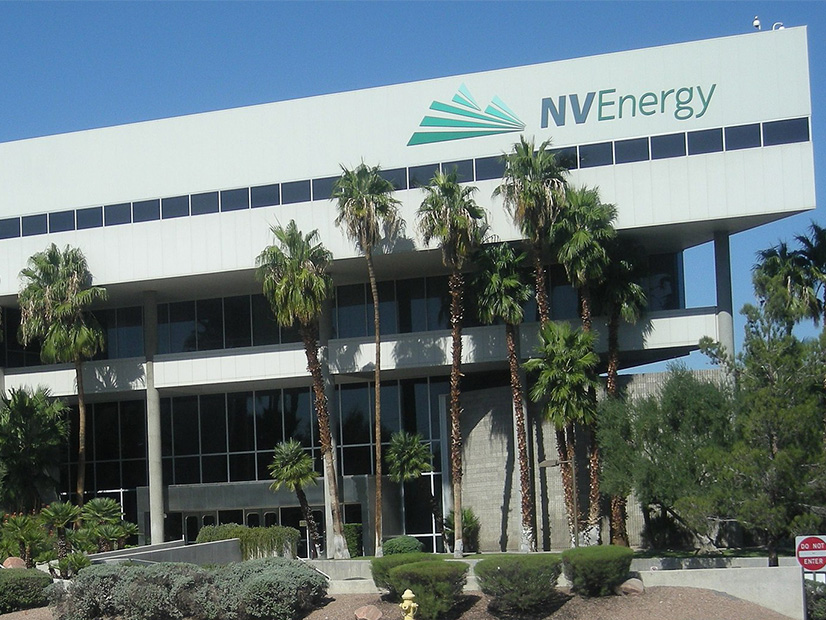A Nevada bill calls on the state’s investor-owned electric utility to set more ambitious targets for its energy efficiency programs and direct more energy-savings efforts to low-income customers.
Senate Bill 382 would require NV Energy to meet an energy savings target equal to 1.3% of retail sales. That would be an increase from the 1.1% target now set by regulation and would bring the requirement more in line with states such as Arizona and Colorado, proponents said.
The utility would be required to spend at least 10% of its energy efficiency budget on programs for low-income customers, twice the current level of 5%.
SB382’s sponsor, the Senate Committee on Growth and Infrastructure, held a hearing on the bill Monday but took no action.
The benefits of energy efficiency include reduced energy costs, the creation of local jobs and a more resilient grid, said Ellen Zuckerman, co-director of the utility program at the Southwest Energy Efficiency Project.
“The cheapest energy is the energy that we never have to generate at all,” Zuckerman said in presenting SB382 to the committee.
Under the bill, the Public Utilities Commission of Nevada could increase the 1.3% energy-savings target if doing so seemed reasonably achievable and cost-effective. On the other hand, the utility could ask to lower the target if economic factors such as a recession make it harder to meet.
The bill would allow the utility to recover costs of the program and counteract disincentives it may create.
“We’re asking NV Energy to sell less of their product,” Dylan Sullivan, a senior scientist with the Natural Resources Defense Council (NRDC), told the committee. “They’re a utility. Utilities almost by definition economically have a lot of fixed costs. We need to address that.”
Sullivan said current regulations allow the utility to collect an amount to offset lost revenue. But if the utility is over-earning, it can’t recover the revenue, he said. SB382 would remove the restrictions related to general-rate revenue or rate-of-return limits.
SB382 would also give the utility an incentive, to be determined by the PUC, for exceeding the 1.3% energy-savings target.
The Bureau of Consumer Protection within the state Attorney General’s Office objected to some of the bill’s financial provisions.
The bill “essentially appropriates hard-earned ratepayer money to incentivize the utility to do what it already has the duty to do, which is to follow the law,” said Ernest Figueroa, consumer advocate and chief deputy attorney general. “The language is not necessary and allows the utility to over-earn.”
NV Energy also opposed the bill as written.
Marie Steele, electrification director at NV Energy, said it’s unclear what the impact of SB382 would be when combined with other energy efficiency legislation introduced this session.
The other bills include Assembly Bill 383, sponsored by Assemblymember Howard Watts (D). AB383 would require the state Office of Energy to set energy efficiency standards for a wide range of appliances.
Steele also said the PUC already has authority to implement many of the changes called for in the legislation.
Sen. Dallas Harris, who chairs the Committee on Growth and Infrastructure, raised a similar issue, asking why SB382 is needed when another energy efficiency bill, SB150, was passed in 2017. SB150 requires the electric utility to implement a cost-effective energy efficiency plan that meets annual energy-savings goals set by the PUC.
“Can you explain a little bit about why that process isn’t working, or how we already know it’s not working, given that we’re just getting started with these kinds of new regs in place?” said Harris, who worked as an administrative attorney with the PUC.
Sullivan said the NRDC’s recent “Pathway” analysis pointed to energy efficiency measures as a key to meeting climate goals. They can also help the state be more resilient in facing climate change events, such as the heat wave that struck last summer, he added.
“The sort of urgency about addressing climate change wasn’t the same in 2017 as it is now,” Sullivan said. “The climate crisis has only gotten more severe since then.”








